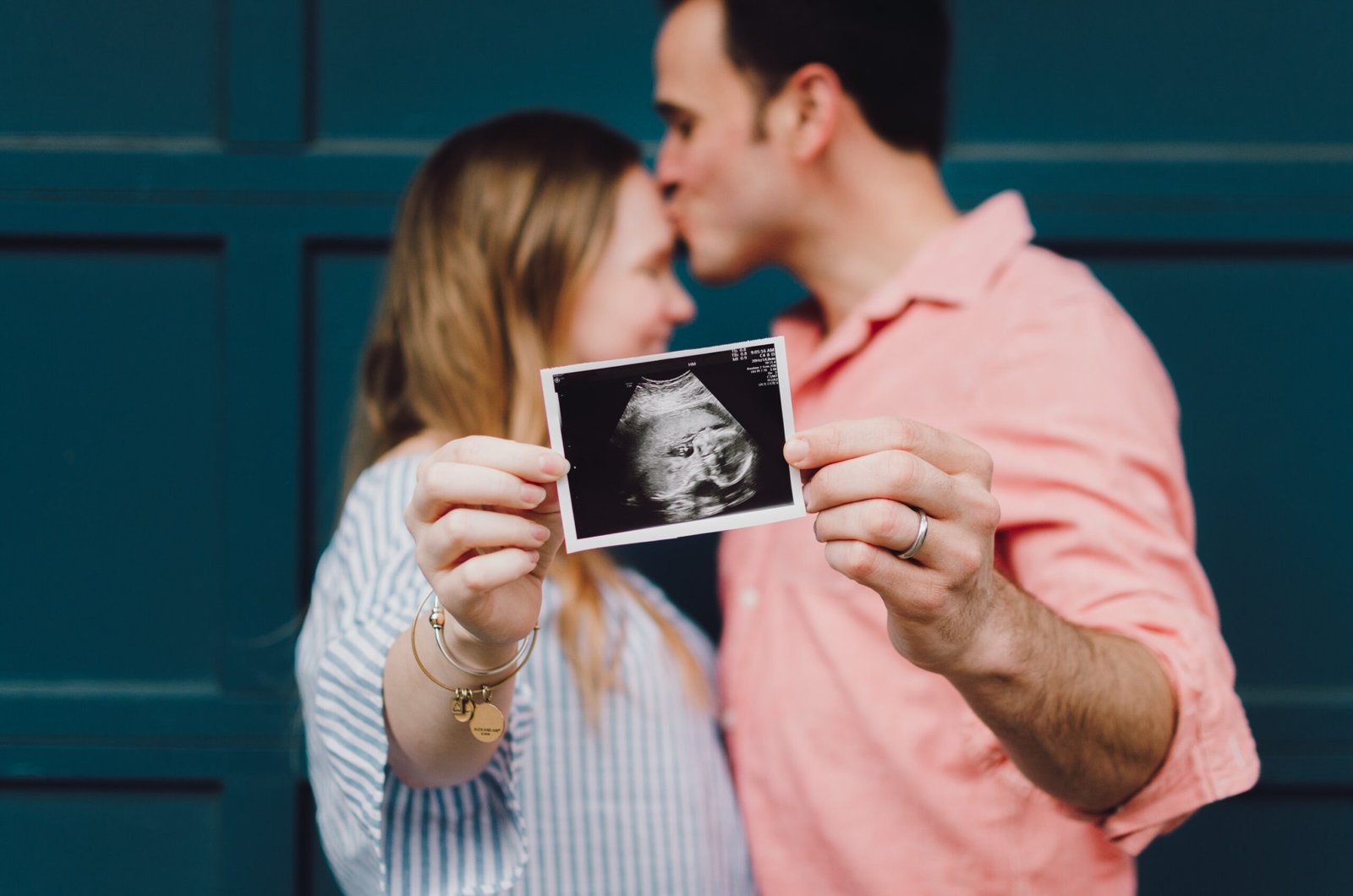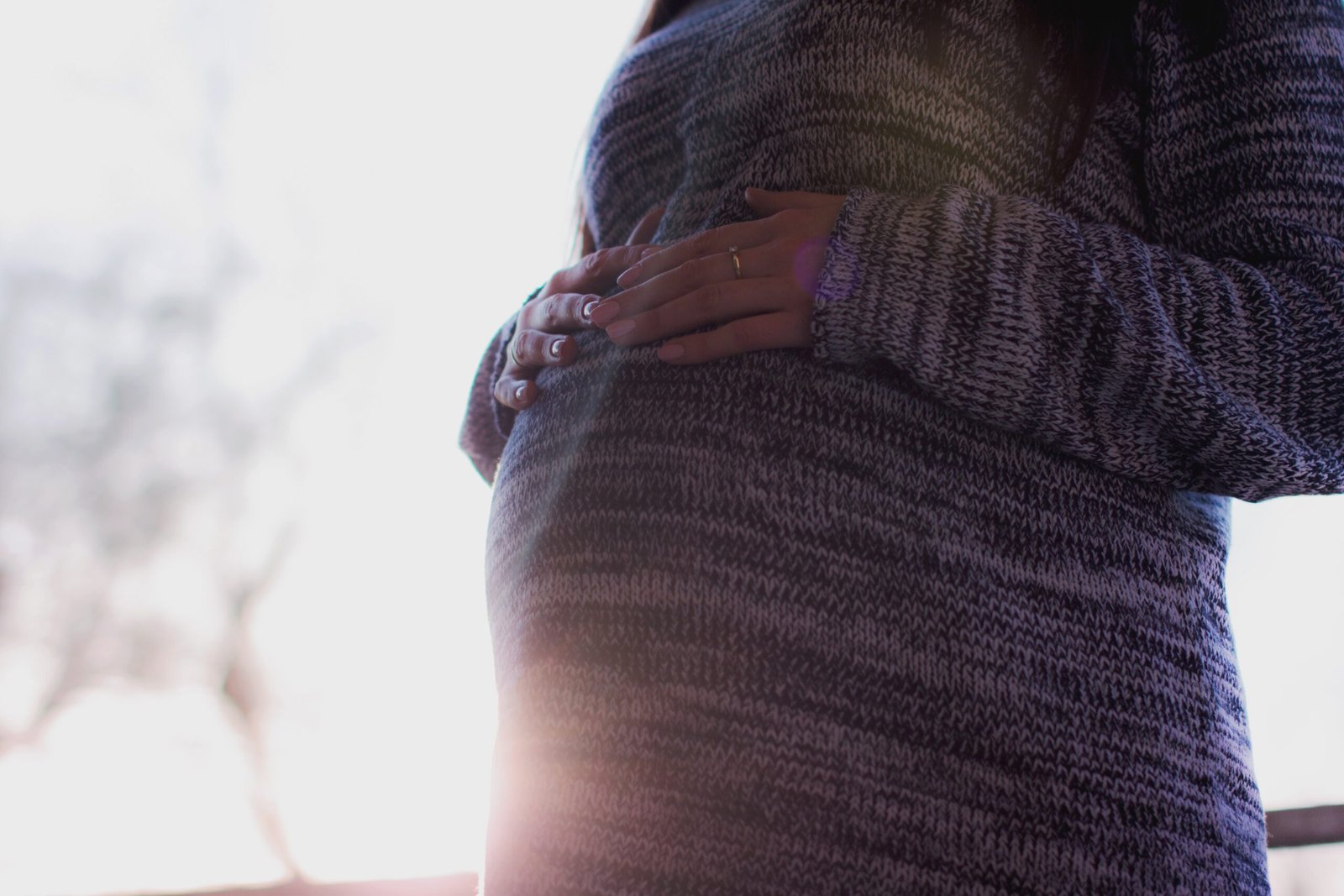So, you’re expecting a little bundle of joy and you couldn’t be more excited! While you may have already given up certain foods or drinks to ensure a healthy pregnancy, have you ever considered the impact of oxalate on your diet? Oxalate, a compound found in various foods, can have mixed effects on pregnant women. In this article, we’ll uncover the basics of oxalate and the potential risks it may pose during pregnancy, so you can make informed choices for you and your baby’s well-being.

This image is property of images.unsplash.com.
Health Effects of Oxalate in Pregnancy
Pregnancy is a time of immense joy and excitement, but it is also crucial to prioritize your health and well-being during this period. One aspect that deserves attention is the impact of oxalate on your pregnancy. Oxalate is a naturally occurring substance found in many foods, and while it is generally harmless, excessive intake can lead to some health concerns. In this article, we will explore the various health effects of oxalate during pregnancy, including the risk of kidney stones, calcium absorption, and its interaction with vitamin C.
Risk of Kidney Stones
One of the primary concerns associated with high oxalate levels during pregnancy is the increased risk of developing kidney stones. Kidney stones are hard deposits that form in the urinary tract, and they can be painful and uncomfortable. When oxalate combines with calcium in the urine, it can crystallize and form kidney stones. Therefore, it is important to be mindful of your oxalate intake to lower the risk of developing kidney stones during pregnancy.
Calcium Absorption
Calcium is essential for the development of your baby’s bones and teeth and plays a vital role in maintaining your own bone health as well. However, the presence of oxalate can hinder the absorption of calcium in the body. This is because oxalate has a tendency to bind with calcium, forming insoluble calcium oxalate crystals that are excreted instead of being absorbed. As a result, it is crucial to monitor and manage your oxalate intake to ensure adequate calcium absorption for both you and your baby.
Vitamin C Interaction
Vitamin C is an important nutrient that supports your immune system and helps in the absorption of iron. However, it is noteworthy that excessive intake of vitamin C can increase the production of oxalate in the body, leading to the formation of oxalate-crystal kidney stones. While vitamin C is crucial for a healthy pregnancy, it is advisable to exercise caution and avoid excessive consumption, especially if you are already at risk for developing kidney stones.
Dietary Sources of Oxalate
To effectively manage your oxalate intake during pregnancy, it is essential to have a good understanding of the dietary sources of oxalate. Here, we will delve into high oxalate foods, foods containing moderate levels of oxalate, as well as low oxalate foods.
High Oxalate Foods
Certain foods are notoriously high in oxalate content and should be consumed in moderation during pregnancy. Some examples of high oxalate foods include spinach, rhubarb, beet greens, Swiss chard, and almonds. While these foods offer numerous nutritional benefits, it is important to monitor your intake and avoid excessive consumption to maintain a healthy balance of oxalate.
Foods Containing Moderate Levels of Oxalate
Moderate oxalate foods can be consumed in moderate amounts to ensure a well-rounded diet during pregnancy. Foods such as strawberries, raspberries, grains like quinoa and wheat, legumes, and certain nuts fall under this category. It is advisable to include these foods in your diet while keeping track of your overall oxalate intake to prevent any complications.
Low Oxalate Foods
To maintain a healthy balance of oxalate during pregnancy, it is beneficial to include low oxalate foods in your diet. These foods have minimal oxalate content and can be consumed more freely. Examples of low oxalate foods include bananas, apples, grapes, carrots, eggs, and certain dairy products. Including a variety of low oxalate foods in your meals can help maintain optimal oxalate levels during pregnancy.

This image is property of images.unsplash.com.
Effect of Oxalate on Fetal Development
During pregnancy, your baby’s development is of utmost importance. The impact of oxalate on fetal development primarily relates to calcium binding and the development of oxalate metabolism.
Calcium Binding
As mentioned earlier, oxalate has a tendency to bind with calcium, forming calcium oxalate crystals. This can hinder the availability of calcium for your baby’s growing bones and teeth, potentially affecting their development. To ensure sufficient calcium for your baby’s needs, it is crucial to manage your oxalate intake and maintain a balance between the two.
Development of Oxalate Metabolism
The ability to metabolize oxalate plays a significant role in preventing excess accumulation of oxalate in the body. During pregnancy, the development of oxalate metabolism in your baby is vital to maintain healthy oxalate levels. By managing your own oxalate intake and following a balanced diet, you can support the proper development of your baby’s oxalate metabolism.
Managing Oxalate Intake During Pregnancy
To ensure a healthy pregnancy, it is important to effectively manage your oxalate intake. Here, we will discuss key strategies for balancing oxalate intake, understanding the importance of adequate calcium, and following dietary recommendations.
Balancing Oxalate Intake
Balancing your oxalate intake involves being conscious of the oxalate content in the foods you consume. By incorporating a combination of high, moderate, and low oxalate foods into your diet, you can maintain a healthy balance and minimize the risk of complications. It may also be beneficial to spread your oxalate intake throughout the day rather than consuming large amounts at once.
Importance of Adequate Calcium
In order to counteract the potential negative effects of oxalate on calcium absorption, it is crucial to ensure adequate calcium intake during pregnancy. Incorporating calcium-rich foods into your diet, such as dairy products, leafy greens, and fortified products, can help support your own bone health as well as your baby’s development.
Dietary Recommendations
Consulting with healthcare professionals is essential to receive personalized dietary recommendations based on your specific needs and medical history. They can provide guidance on managing your oxalate intake and advise on any necessary modifications to optimize your pregnancy. Following their recommendations will help you maintain a healthy diet and minimize any potential risks associated with excessive oxalate consumption.

This image is property of images.unsplash.com.
Preventing Kidney Stones in Pregnancy
Kidney stones can be incredibly uncomfortable and may pose certain risks during pregnancy. Taking proactive measures to prevent kidney stones is crucial for a healthy and enjoyable pregnancy experience. Here, we will explore the importance of hydration, medical intervention, and lifestyle changes in preventing kidney stones during pregnancy.
Hydration
Staying hydrated is paramount when it comes to preventing kidney stones during pregnancy. Drinking an adequate amount of water throughout the day helps dilute the urine, preventing the concentration of oxalate and other substances that contribute to the formation of kidney stones. Aim to drink at least eight to ten glasses of water daily and listen to your body’s thirst cues.
Medical Intervention
If you have a history of kidney stones or are at an increased risk, your healthcare provider may recommend certain medications or interventions to reduce the likelihood of stone formation during pregnancy. It is important to follow their advice closely and communicate any concerns or symptoms promptly to ensure timely intervention.
Lifestyle Changes
Certain lifestyle changes can also contribute to the prevention of kidney stones. Regular exercise and physical activity help maintain healthy weight and proper kidney function, reducing the risk of stone formation. Additionally, avoiding excessive consumption of high oxalate foods and practicing moderation can further minimize the risk of kidney stones during pregnancy.
Potential Risks of Excessive Oxalate Intake
While oxalate is generally harmless when consumed in moderation, excessive intake can lead to certain risks and complications. It is important to be aware of the potential risks associated with high oxalate intake during pregnancy to make informed choices for your well-being and that of your baby.
Calcium Deficiency
Excessive oxalate consumption can interfere with calcium absorption in the body, potentially leading to calcium deficiency. Calcium deficiency can have serious implications for both you and your baby’s bone health. By managing your oxalate intake and ensuring adequate calcium consumption, you can help prevent calcium deficiency and maintain optimal health during pregnancy.
Hyperoxaluria
Hyperoxaluria is a condition characterized by high levels of oxalate in the urine. Excessive oxalate intake can contribute to the development of hyperoxaluria, which increases the risk of kidney stone formation. By monitoring and managing your oxalate intake, you can reduce the likelihood of developing hyperoxaluria and minimize the associated risks.
Urinary Tract Infections
While oxalate itself does not cause urinary tract infections (UTIs), high oxalate levels can contribute to the formation of kidney stones, which can obstruct the urinary tract and increase the risk of infection. UTIs can be uncomfortable and pose certain risks during pregnancy. By maintaining a healthy balance of oxalate and following preventive measures, you can minimize the risk of UTIs and promote a healthy pregnancy.
Effects of Oxalate on Vitamin C
Vitamin C is an essential nutrient that helps support your immune system and overall health. However, when it comes to oxalate and vitamin C, there is a potential risk of oxalate-crystal kidney stone formation that deserves attention.
Risk of Oxalate-Crystal Kidney Stones
Excessive intake of vitamin C can increase the production of oxalate in the body, leading to the formation of oxalate-crystal kidney stones. While it is important to consume an adequate amount of vitamin C during pregnancy, it is advisable to exercise caution and avoid excessive consumption, particularly if you are already at risk for developing kidney stones.
Cautionary Consumption of Vitamin C
While vitamin C is a valuable nutrient, it is essential to strike a balance in its consumption during pregnancy. Opting for natural food sources of vitamin C, such as citrus fruits, berries, and leafy greens, can help ensure an appropriate intake without risking excessive production of oxalate. When considering vitamin C supplements, consult with your healthcare provider to determine the dosage that is safe and suitable for your individual needs.
Oxalate Testing and Monitoring during Pregnancy
Testing and monitoring oxalate levels during pregnancy can provide valuable insights into your health and help assess any risks or imbalances. Here, we will discuss two important methods of testing – urine testing and blood testing – as well as the importance of regular monitoring.
Urine Testing
Periodic urine testing can help measure the levels of oxalate excreted in your urine. This information can be used to monitor your oxalate levels and determine if any adjustments to your diet or lifestyle are necessary. Your healthcare provider can provide specific instructions on how to collect a urine sample and guide you through the process of interpreting the results.
Blood Testing
Blood testing can provide a comprehensive overview of various essential nutrients, including oxalate and calcium levels. This testing method can help identify any deficiencies or imbalances, allowing healthcare professionals to provide tailored recommendations and interventions as needed. Regular blood testing during pregnancy can ensure that you and your baby are receiving the necessary nutrients for a healthy pregnancy.
Regular Monitoring
Regular monitoring of oxalate levels is crucial to ensure that you are maintaining a healthy balance throughout your pregnancy. By establishing a monitoring schedule and communicating regularly with your healthcare provider, you can stay updated on your oxalate levels and make any necessary adjustments to your diet and lifestyle in a timely manner.
Advice for Pregnant Women with History of Kidney Stones
If you have a history of kidney stones, it is important to take extra precautions during pregnancy. Here, we will provide advice on specialized diet plans, lifestyle changes, and the importance of consulting with healthcare professionals.
Specialized Diet Plans
Consulting with a registered dietitian or healthcare professional experienced in managing kidney stones can be incredibly beneficial for pregnant women with a history of kidney stones. They can help create a specialized diet plan that takes into account your specific needs and helps minimize the risk of stone formation. Following a well-designed diet plan can give you peace of mind and support a healthy pregnancy.
Lifestyle Changes
Adopting certain lifestyle changes can contribute to preventing kidney stones in pregnant women with a history of kidney stones. Regular exercise, staying hydrated, and avoiding excessive consumption of high oxalate foods are some lifestyle modifications that can reduce the likelihood of stone formation. By incorporating these changes into your routine, you can actively promote a healthy pregnancy and minimize any potential complications.
Consulting with Healthcare Professionals
It is crucial to maintain open and regular communication with your healthcare professionals throughout your pregnancy journey. Inform them about your history of kidney stones and any concerns or symptoms you may experience. They can provide personalized advice, monitor your health closely, and offer timely interventions as needed. Your healthcare professionals are your best resource for managing kidney stones during pregnancy and ensuring the well-being of both you and your baby.
Prenatal Supplements and Oxalate Content
Prenatal supplements play a crucial role in meeting the nutritional needs of pregnant women. When considering prenatal supplements, it is important to be mindful of the oxalate content to maintain a balanced intake. Here, we will discuss key considerations when choosing the right prenatal supplement, how to read supplement labels, and why it is important to discuss with healthcare providers.
Choosing the Right Prenatal Supplement
Choosing the right prenatal supplement is essential for meeting your nutritional needs during pregnancy. Consider opting for supplements that are specifically formulated for pregnant women, as they usually contain the appropriate amounts of essential vitamins and minerals. It is also important to take into account the oxalate content of the supplement to ensure a healthy balance and prevent excessive intake.
Reading Supplement Labels
Reading supplement labels can provide valuable information about the ingredients and nutritional content. Pay close attention to the oxalate content listed on the label, ensuring it aligns with your dietary goals and restrictions. If you have any concerns or questions, do not hesitate to consult with your healthcare provider for clarification or for alternative recommendations.
Discussing with Healthcare Providers
Discussing your choice of prenatal supplements with your healthcare provider is key to ensuring that they are suitable for your individual needs. They can review the ingredients and oxalate content of the supplement, evaluate how it fits into your overall dietary plan, and provide guidance based on your specific requirements. Working together with your healthcare provider will help you make informed decisions regarding prenatal supplements and optimize your nutritional intake during pregnancy.
In conclusion, maintaining a balanced oxalate intake during pregnancy is important for your own well-being as well as the healthy development of your baby. By managing your dietary choices, staying hydrated, and undergoing regular monitoring, you can minimize the risks associated with excessive oxalate consumption and promote a healthy and stress-free pregnancy journey. Remember to consult with healthcare professionals for personalized recommendations and support throughout your pregnancy.

